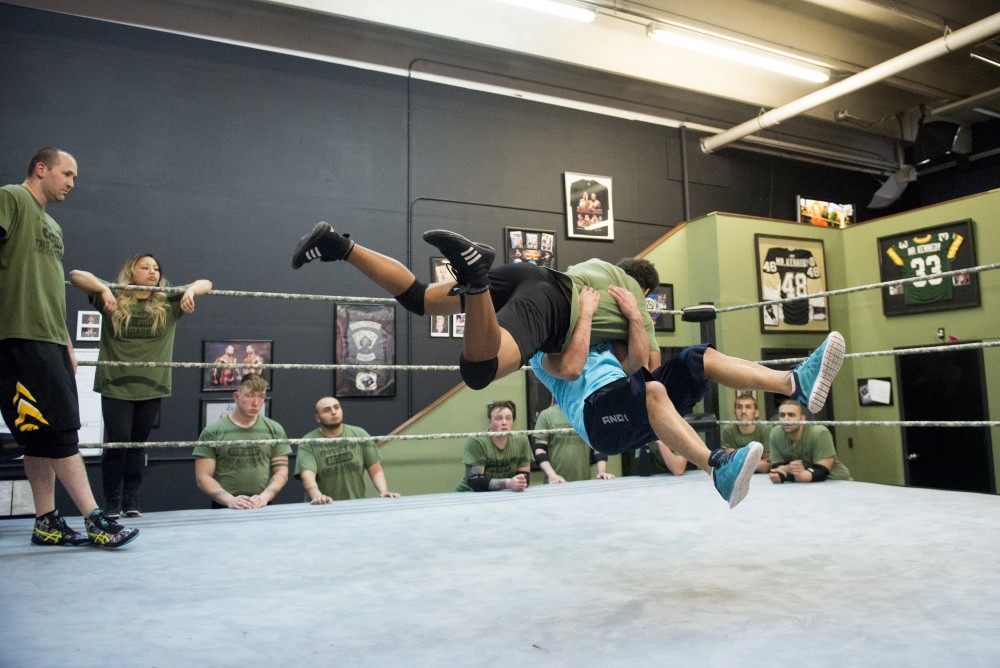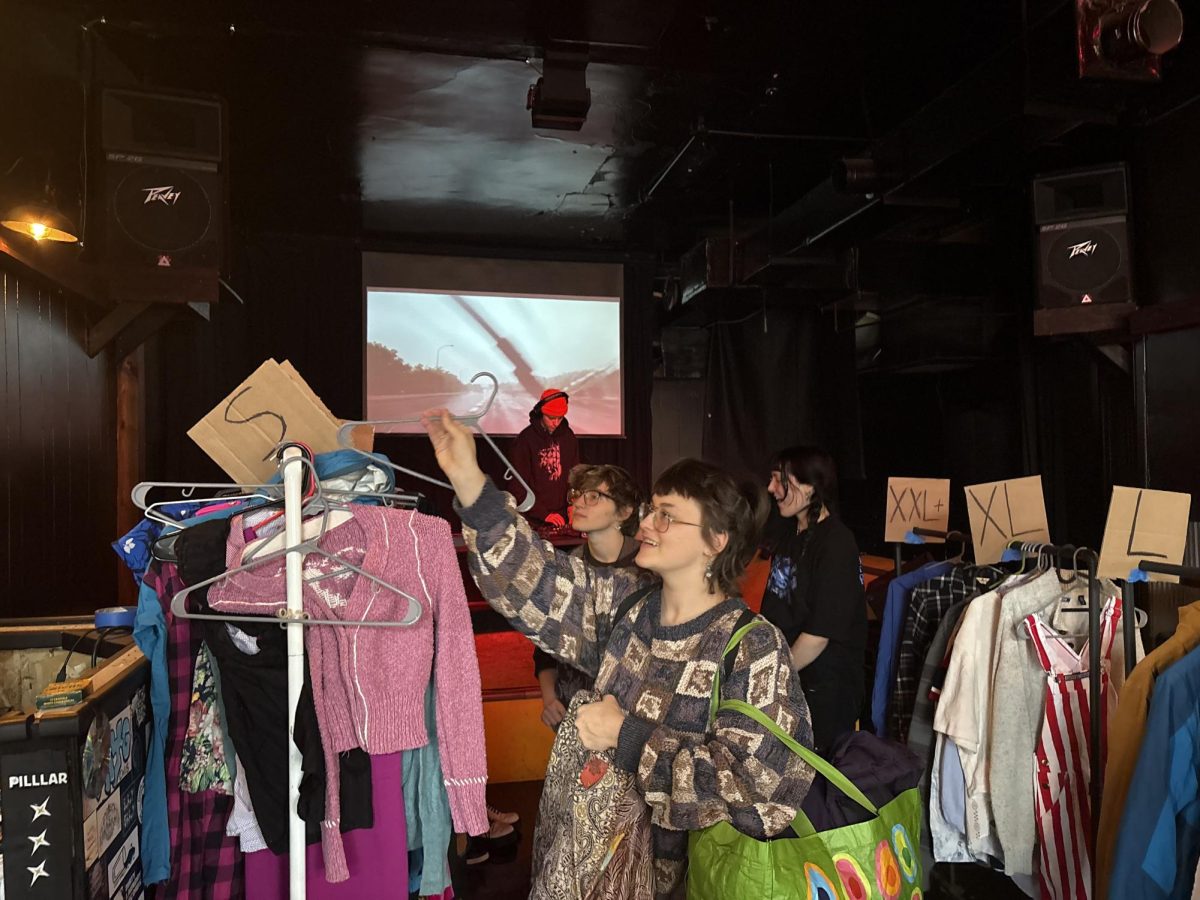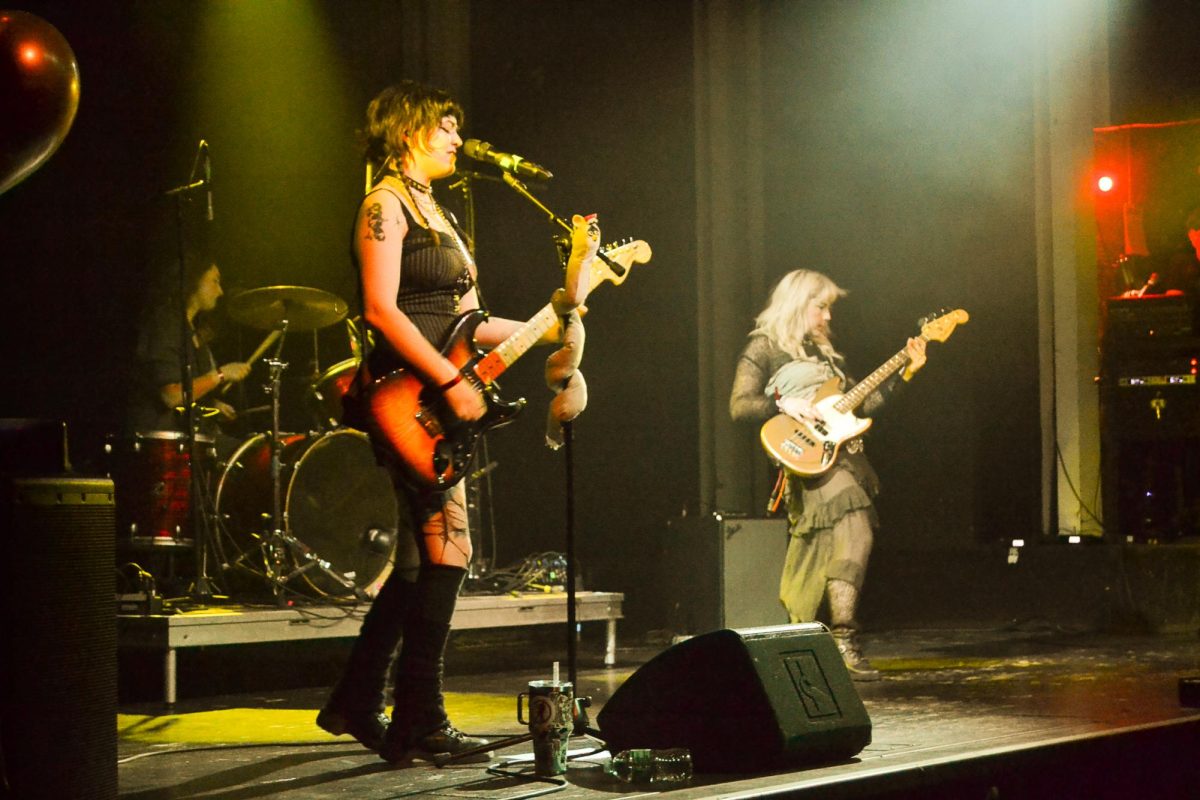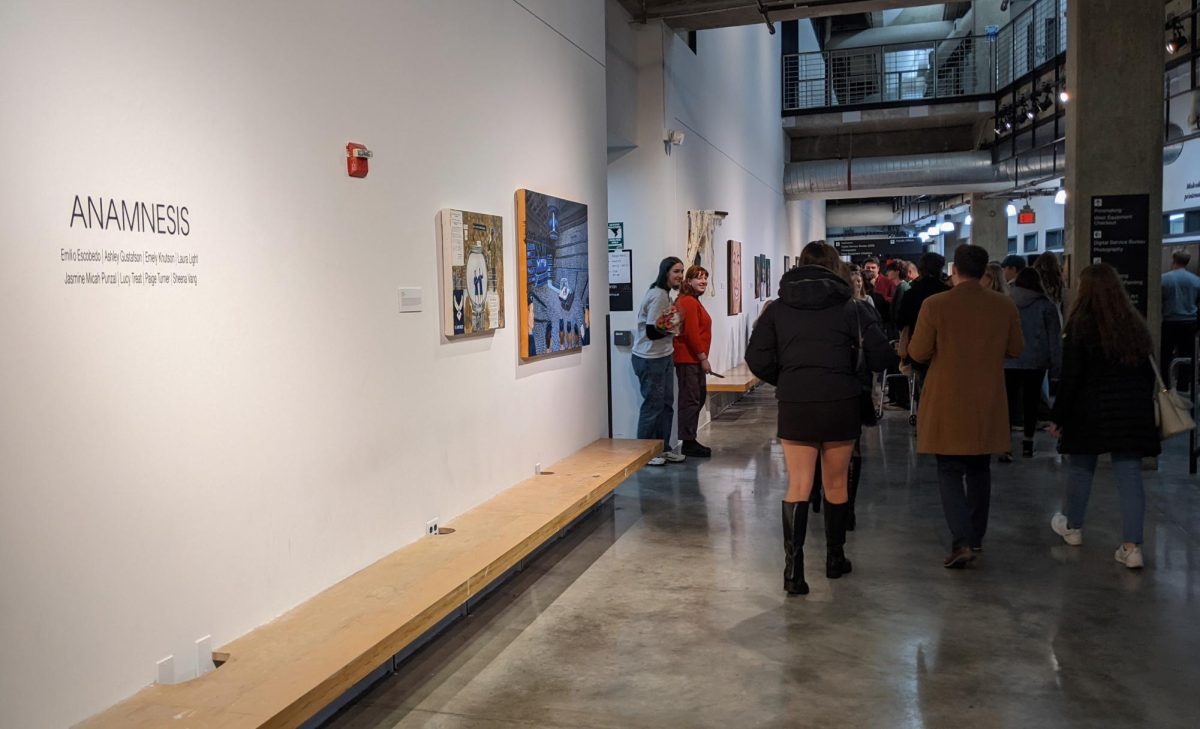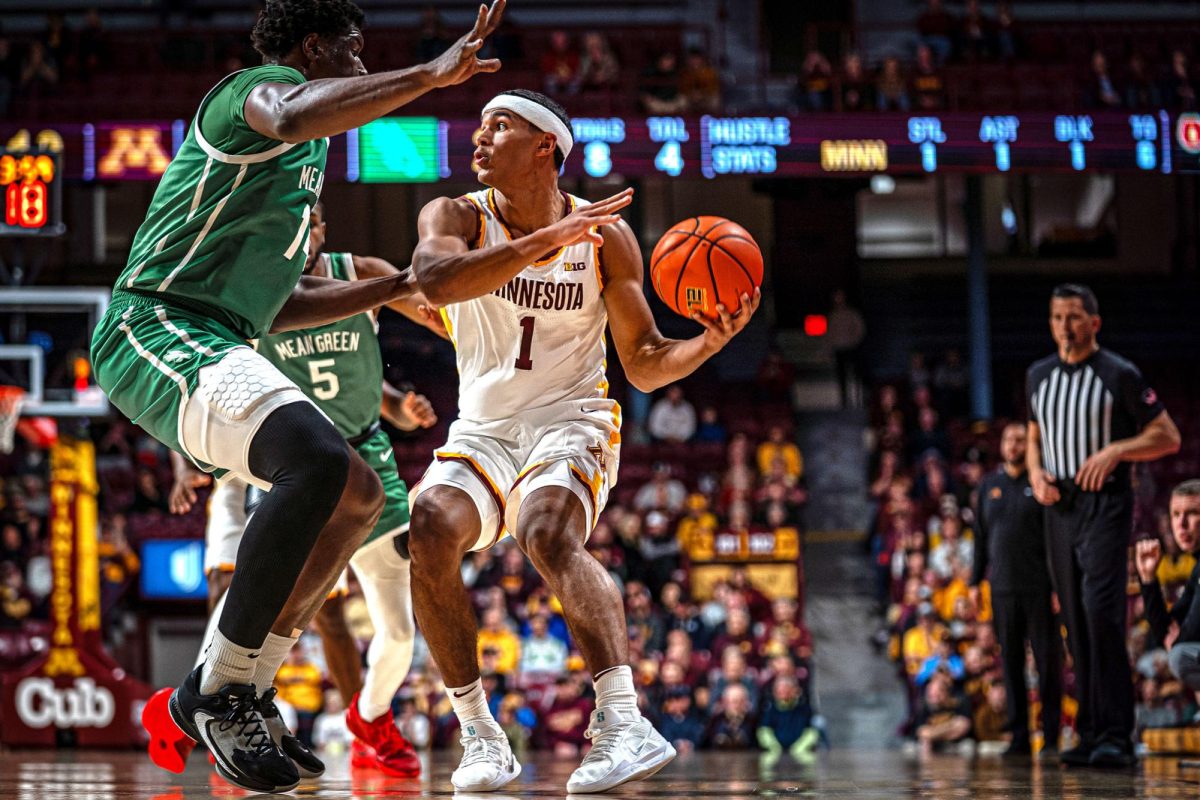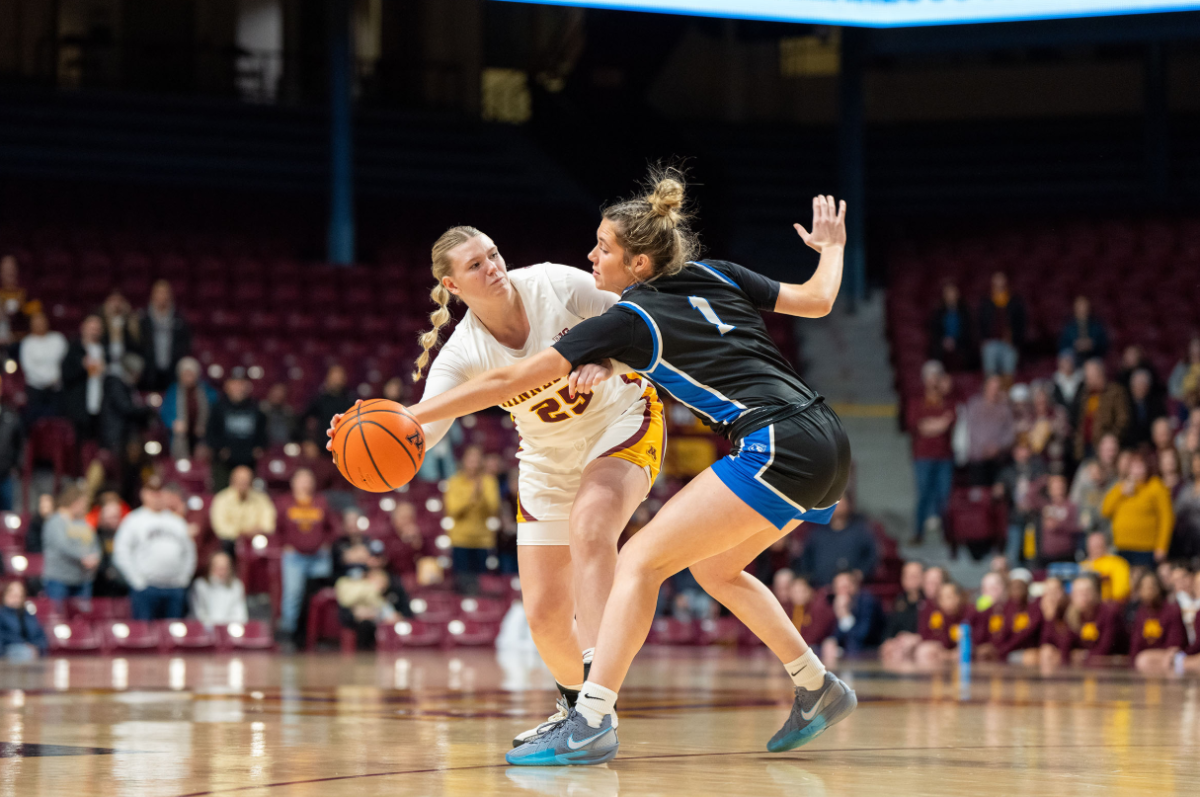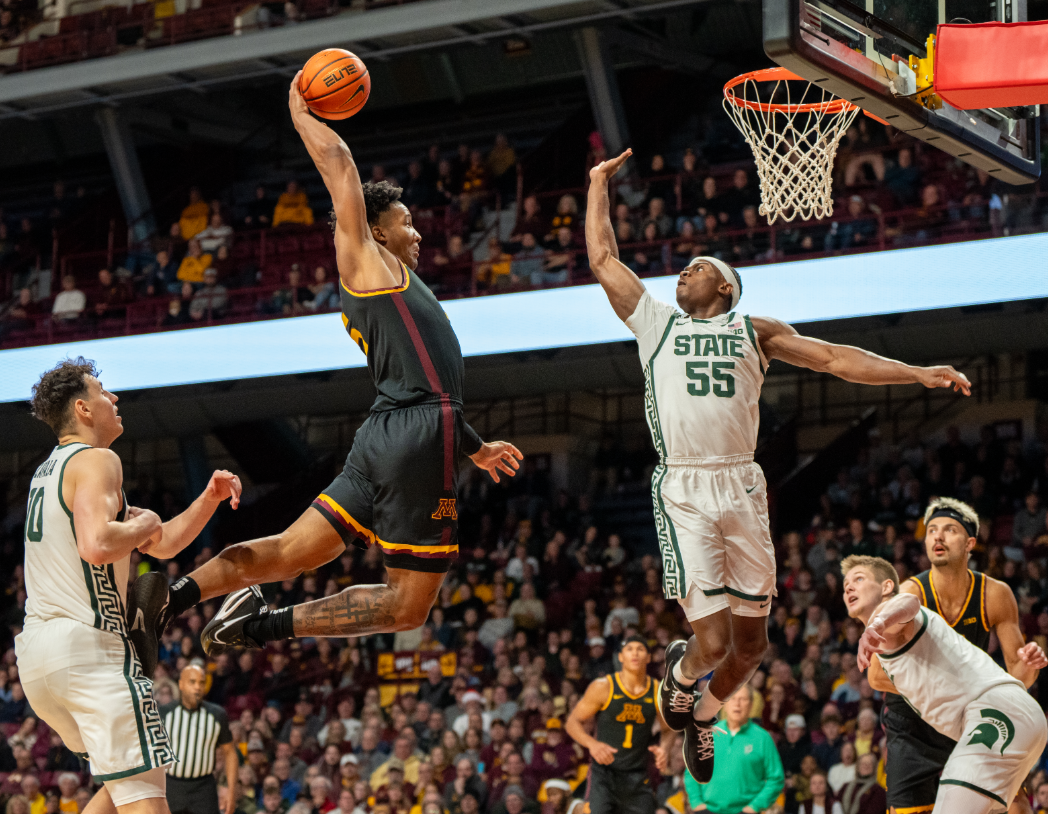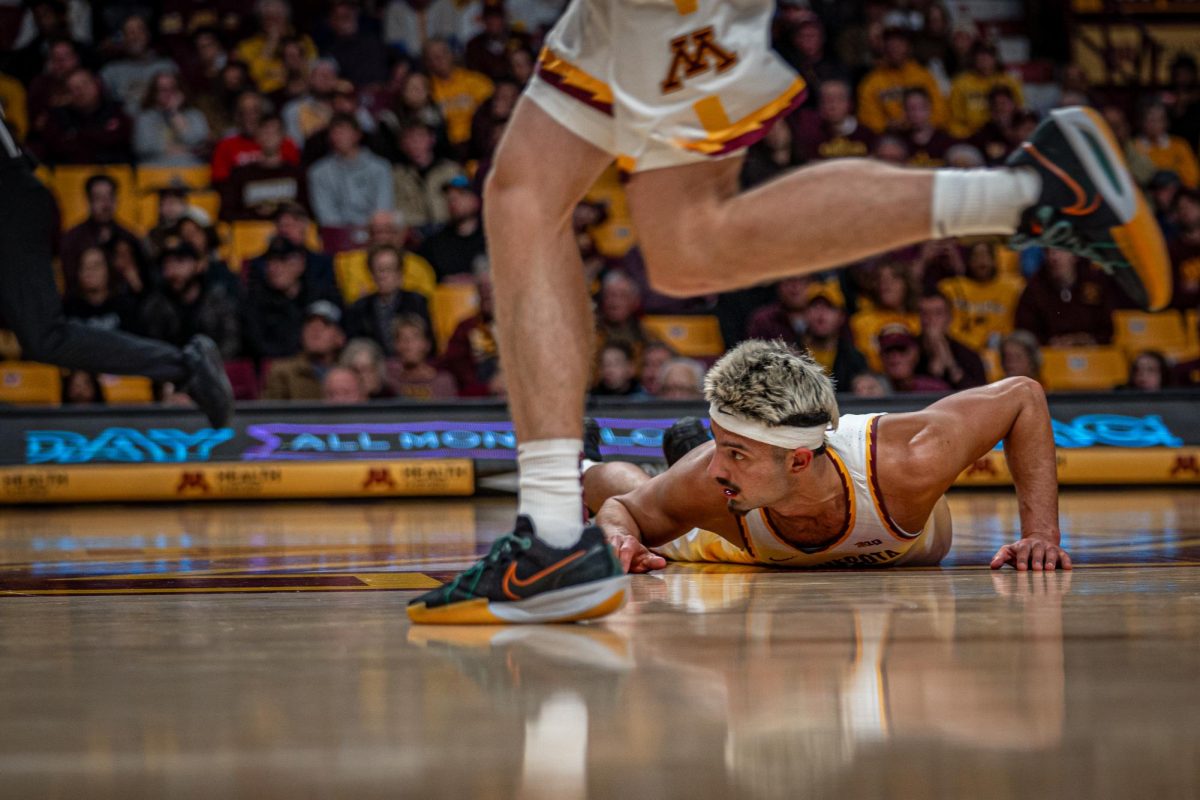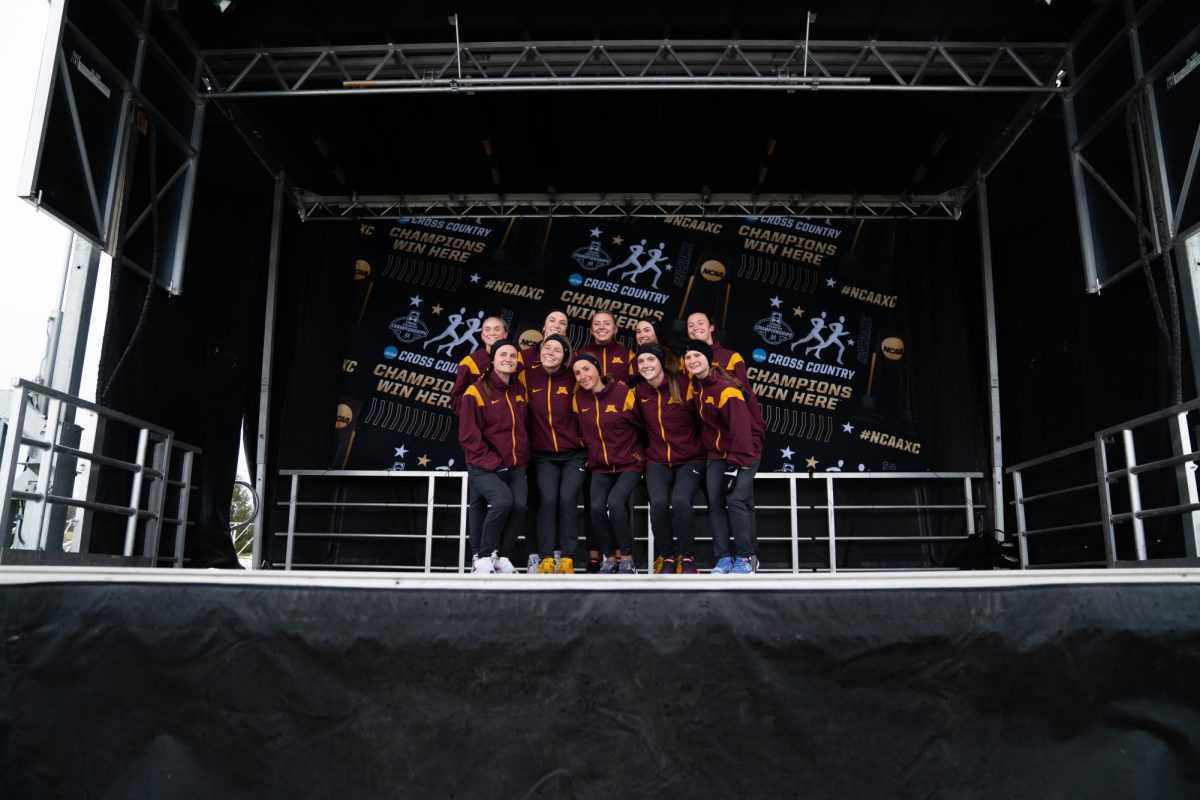In the lobby of The Academy’s warehouse, a cabinet of action figures lines one wall, with plastic versions of coaches throughout their careers as professional wrestlers. In the training room, a ring is surrounded by 10-foot tall prints of the coaches, glaring in their pre-fight stances.
The Academy: School of Professional Wrestling opened a year and a half ago, continuing a history of Minnesota-based pro wrestling training that started in the ‘80s with a man named Eddie Sharkey.
“He’s a huge deal,” Shawn Daivari, former WWE wrestler and co-founder of The Academy, said. “He’s one of the reasons that we came back to Minneapolis. It’s kind of a hotbed for pro wrestlers.”
While Sharkey was training pro wrestling legends like the Road Warriors, he took an interest in a small, scrawny 16-year-old: Daivari himself.
“I was pretty much a rag doll — they had me there to get the shit beat out of me,” Daivari said.
No one would have expected Daivari to be a pro wrestler — even he describes himself at the time as a “skinny bony-jabroni.” But that didn’t stop him from chasing the lights. In fact, this underdog mentality shaped his career and the coaching philosophy of The Academy.
“None of my coaches should have been successful, but we all were,” Daivari said.
For this reason, The Academy has an open door policy — no one is turned away. While this might seem like a way to scam skinny high schoolers out of $3,000, tuition is on the low side in the industry. And owner’s Daivari and Ken Anderson take their open door policy seriously.
To Daivari, the only things that matter in the industry are care and passion. “That’s it. [Our coaches] would refuse to take ‘no’ for an answer, which I think is a successful formula for any entertainer,” he said.
It’s clear Daivari loves the industry through all of its ups and downs.
After 9/11, Daivari felt a sudden wave of prejudice he hadn’t known before.
“I never knew I was a minority, but after 9/11 I started noticing that people didn’t like me; I had to come to terms with that,” he said. “I was a super popular wrestler and I did nothing wrong, and then all of a sudden the people who were cheering me were booing me.”
But this negative attention wasn’t necessarily a bad thing for Daivari’s role in the entertainment industry.
“Around 2004, T.V. shows started using Middle Easterners as villains … and WWE, they’re just a reflection of pop culture … and they signed me,” Daivari said. “It was red hot.”
This burst of prejudice didn’t bother Daivari too much. “I never looked at anything but the result.”
With this result-oriented mindset, Daivari is perplexed by the recent rise of political correctness and censorship in the pro wrestling world.
But Daivari is quick to recognize, in accordance with his whatever-works philosophy, that what he thinks isn’t what matters.
“I haven’t bought a pro wrestling ticket since 1999 — my opinion is worthless,” he said.
Others coaches at The Academy are more optimistic about the changing culture.
“Wrestling is one of those things that has to continue to evolve in order to survive,” said assistant coach Arik Cannon.
Cannon noted the positive aspects of a more aware industry: “The opportunities that women are getting and guys of smaller stature are getting are way better.”
This adaptability is what originally inspired Anderson and Daivari to build their business.
“Me and [Anderson] have always had the open idea that success is in the eye of the beholder,” Daivari said. “What works for you might not work for me or for him.”
For this reason, Daivari and Anderson custom-build their curriculum with all their students. The school offers two-day boot camps, and their next class starts June 30.
The goal is to look forward, now. As Cannon puts it, “We’re grooming the next generation of wrestlers.”


